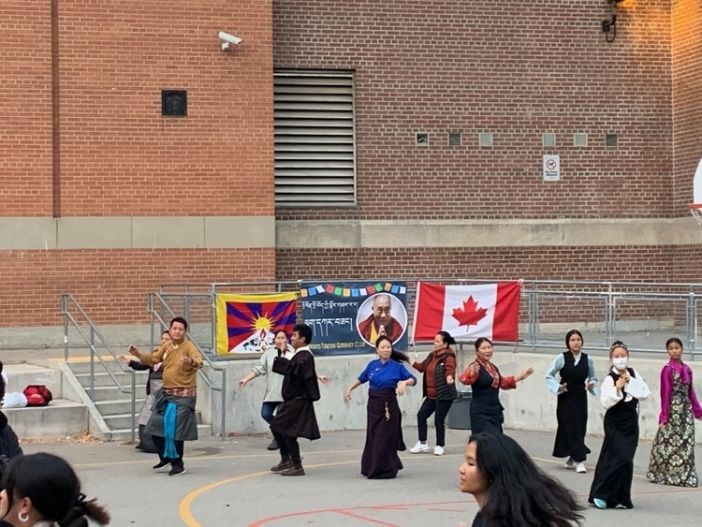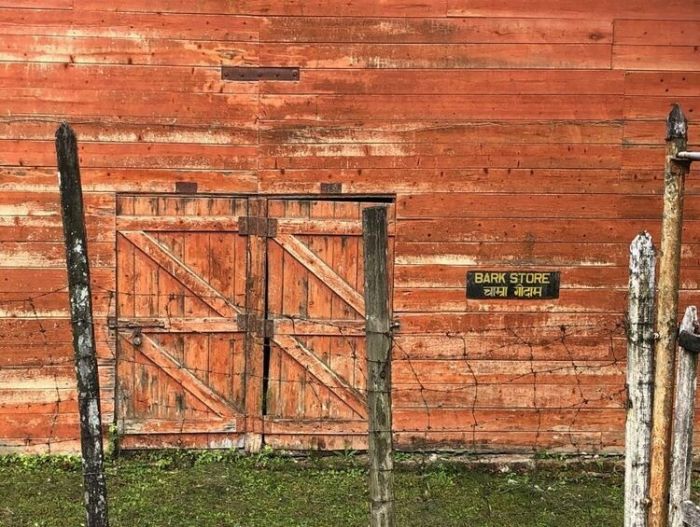South Asia Program
Information Session: Laidlaw Research and Leadership Program

October 1, 2024
5:00 pm
Uris Hall, G08
The Laidlaw Undergraduate Leadership and Research Program promotes ethical leadership and international research around the world—starting with the passionate leaders and learners found on campuses like Cornell. Open to first- and second-year students, the two-year Laidlaw program provides generous support to carry out internationally focused research, develop leadership skills, engage with community projects overseas, and become part of a global network of like-minded scholars from more than a dozen universities. We’ll also share tips for approaching potential faculty research mentors and writing a successful application.
Can’t attend? Contact laidlaw.scholars@cornell.edu.
***
The Mario Einaudi Center for International Studies hosts info sessions for graduate and for undergraduate students to learn more about funding opportunities, international travel, research, and internships. View the full calendar of fall semester sessions.
Additional Information
Program
Einaudi Center for International Studies
Reppy Institute for Peace and Conflict Studies
East Asia Program
Southeast Asia Program
Latin American and Caribbean Studies
Institute for African Development
Institute for European Studies
South Asia Program
Migrations Program
Information Session: Global Internships

September 17, 2024
5:00 pm
Uris Hall, G08
Go global in summer 2025! Global Internships give you valuable international work experience in fields spanning global development, climate and sustainability, international relations, communication, business, governance, and more.
***
The Mario Einaudi Center for International Studies hosts info sessions for graduate and for undergraduate students to learn more about funding opportunities, international travel, research, and internships. View the full calendar of fall semester sessions.
Additional Information
Program
Einaudi Center for International Studies
Reppy Institute for Peace and Conflict Studies
East Asia Program
Southeast Asia Program
Latin American and Caribbean Studies
Institute for African Development
Institute for European Studies
South Asia Program
Migrations Program
Information Session: Undergraduate Global Scholars Program

September 4, 2024
5:00 pm
Uris Hall, G08
Undergraduate Global Scholars are student leaders in the campus community. This competitive fellowship program is open to students from all colleges and majors with a passion for big global questions and speaking across differences. The Global Scholars program provides a toolkit of resources for weighing challenging questions and builds your practical skills in public debates. For the 2024-2025 school year, Scholars will bring their skills as writers, scholars, activists and artists, poets, hands-on practitioners, and more to study and promote democracy building. By the end of the program, you'll be an active global citizen and champion for social impact.
Applications are due Friday, September 20.
Can’t attend? Contact programs@einaudi.cornell.edu.
***
The Mario Einaudi Center for International Studies hosts info sessions for graduate and for undergraduate students to learn more about funding opportunities, international travel, research, and internships. View the full calendar of fall semester sessions.
Additional Information
Program
Einaudi Center for International Studies
Reppy Institute for Peace and Conflict Studies
East Asia Program
Southeast Asia Program
Latin American and Caribbean Studies
Institute for African Development
Institute for European Studies
South Asia Program
Migrations Program
China Cuts Interest Rates in Bid to Prop Up Lagging Economic Growth

Eswar Prasad, SAP
“This quantitatively modest but symbolically significant set of actions signals the government’s willingness, finally, to use macroeconomic stimulus to support faltering economic activity,” says Eswar Prasad, professor of economics.
Additional Information
One Day/Thirty Years: Theoretical Storytelling Between Tibet, Kathmandu, and Toronto

September 30, 2024
12:15 pm
Uris Hall, G08
Talk by Carole McGranahan (Anthropology, University of Colorado)
What does a day of ethnographic research look like? In this talk, I present one day, over the course of thirty years of research with the Tibetan community, sinking into what it feels like to be immersed, to notice, to ask, to listen. I move across field sites – Kathmandu, Toronto, New York – and among people, mostly Pala, Ama, and their families. This is about what it means to make home as a refugee, to learn ethnographically, and to commit to a community. It is an exercise in theoretical storytelling across place and over time about how research grounded in Kathmandu and stories of Tibet extends across continents and oceans to Himalayan North America.
Carole McGranahan is Professor and Chair of the Department of Anthropology at the University of Colorado, USA, and a scholar of contemporary Tibet and the Himalayas. She is the author of Arrested Histories: Tibet, the CIA, and Memories of a Forgotten War (2010), co-editor of Imperial Formations (2007) and Ethnographies of U.S. Empire (2018), and editor of Writing Anthropology: Essays on Craft and Commitment (2020). She is currently co-editing The Tibet Reader, a volume on Ethics and Ethnography, and finishing a book about theoretical storytelling.
Additional Information
Program
Einaudi Center for International Studies
South Asia Program
Quinine’s Remains: Empire’s Medicine and the Life Thereafter

September 16, 2024
12:15 pm
Uris Hall, G08
Talk by Townsend Middleton (University of North Carolina at Chapel Hill)
What happens after colonial industries have run their course? When the factory closes and the fields go fallow, how do laboring communities continue to live and fight amid all that remains? In this talk, anthropologist (and Cornell SAP alum), Towns Middleton takes on these questions through a discussion of his new book Quinine’s Remains. Harvested from cinchona bark, quinine was malaria’s only remedy throughout the colonial period. As such, the alkaloid was vital to the British Empire. British botanists appropriated cinchona from indigenous South America, bringing the ‘fever tree’ to India in the 19th century and establishing massive plantations to produce the medicine the empire needed. Today, the cinchona plantations of the Darjeeling Hills remain—as do the roughly fifty thousand people who call them home. Their futures, however, are unclear. The Indian government has threatened to privatize or shut down this seemingly obsolete and crumbling industry, but the plantation community, led by strident trade unions, has successfully resisted. Overgrown cinchona fields and shuttered quinine factories may appear the stuff of postcolonial ruination, but quinine’s remains are not dead. Rather, they have become the site of urgent efforts to redefine land and life for the twenty-first century. To engage quinine’s remarkable history and its often-confounding aftermaths, then, is to explore what it means to forge life after empire.
Townsend Middleton is an Associate Professor of Anthropology at the University of North Carolina at Chapel Hill. He received his PhD in Anthropology from Cornell University in 2010. He is the author of The Demands of Recognition: State Anthropology and Ethnopolitics in Darjeeling (Stanford 2015) and co-editor of Darjeeling Reconsidered: Histories, Politics, Environments (OUP-India 2018). He publishes broadly on political culture and the conditions of postcoloniality in the Indian Himalayas. He is currently co-editor of the scholarly magazine Limn.
Quinine’s Remains is published by the University of California Press (2024) and is available in digital Open Access format for free globally.
Additional Information
Program
Einaudi Center for International Studies
South Asia Program
Colonizing Kashmir

October 10, 2024
12:00 pm
Uris Hall, G08
State-Building Under Indian Occupation
In this talk, Dr. Hafsa Kanjwal discusses her book Colonizing Kashmir: State-Building Under Indian Occupation. The book interrogates how Kashmir was made “integral” to India through a study of the decade long rule (1953-1963) of Bakshi Ghulam Mohammad, the second Prime Minister of the State of Jammu and Kashmir. Drawing upon a wide array of bureaucratic documents, propaganda materials, memoirs, literary sources, and oral interviews in English, Urdu, and Kashmiri, Kanjwal examines the intentions, tensions, and unintended consequences of Bakshi’s state-building policies in the context of India’s colonial occupation.
She reveals how the Kashmir government tailored its policies to integrate Kashmir’s Muslims while also showing how these policies were marked by inter-religious tension, corruption, and political repression. Challenging the binaries of colonial and postcolonial, Kanjwal historicizes India’s occupation of Kashmir through processes of emotional integration, development, normalization, and empowerment to highlight the new hierarchies of power and domination that emerged in the aftermath of decolonization. In doing so, she urges us to question triumphalist narratives of India’s state-formation, as well as the sovereignty claims of the modern nation-state.
About the Speaker
Hafsa Kanjwal is an associate professor of South Asian History in the Department of History at Lafayette College in Easton, Pennsylvania, where she teaches courses on the history of the modern world, South Asian history, and Islam in the Modern World. As a historian of modern Kashmir, she is the author of Colonizing Kashmir: State-building Under Indian Occupation (Stanford University Press, 2023), which examines how the Indian and Kashmir governments utilized state-building to entrench India’s colonial occupation of Kashmir in the aftermath of Partition. Hafsa has written and spoken on her research for a variety of news outlets including The Washington Post, Al Jazeera English, and the BBC.
Host
Judith Reppy Institute for Peace and Conflict Studies
Co-Host
South Asia Program
Additional Information
Program
Einaudi Center for International Studies
Reppy Institute for Peace and Conflict Studies
South Asia Program
William Lodge

Assistant Professor of Health Equity and Public Policy
Geographic Research Area: South Asia, Brazil, Tanzania, Somalia, Nigeria, and the United States.
Teaching/Research Interests: William Lodge is a behavioral and social scientist specializing in HIV primary and secondary prevention, focusing on gender and sexual minority health both domestically and internationally. While his work has primarily focused on South Asia, he has also worked on projects in Brazil, Tanzania, Somalia, Nigeria, and the United States.
Additional Information
Democracy and the Next Generation Perish as Freedom of Expression Wanes

Sharif Hozoori, SAP/GPV
GPV fellow Sharif Hozoori writes, "When fundamental rights are threatened and freedom of expression is under attack, citizens should step forward and take the right side. Otherwise, democracy and the next generation will perish as freedom of expression wanes."
Additional Information
Dirty Cooking Fuels Pose Major Threat to Infants in India

Arnab Basu, SAP
Twenty-seven of every 1,000 babies and children in India die due to exposure to indoor air pollution, according to new research findings from Arnab Basu (SAP) and Nancy Chau.
